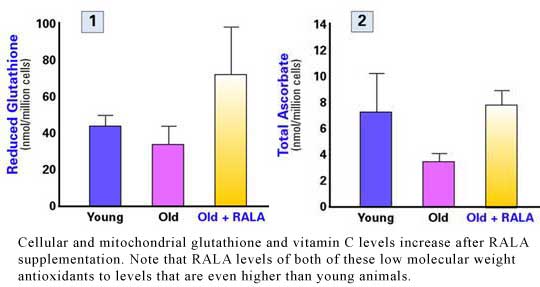
The Universal Antioxidant as a “Polypill”
The most common conditions for which lipoic acid has been used are mostly related to diabetes and liver disorders. Lipoic acid is known to enhance blood sugar control by improving insulin sensitivity. Thanks to its anti-inflammatory effects, it’s also been shown to help with a painful diabetic complication called neuropathy (nerve damage). In addition, its powerful antioxidant properties seem to provide a protective effect in a number of liver diseases.
Recently scientists have been experimenting with the use of alpha lipoic acid in a broader range of conditions. One such example was published in the February issue of the Archives of Biochemistry and Biophysics. Researchers from the Linus Pauling Institute at Oregon State University conducted a trial to evaluate the potential of alpha lipoic acid in lowering high triglycerides (a risk factor for heart disease).
The results of the research were dramatic. A group of rats given therapeutic dosages of lipoic acid exhibited drops in their triglycerides of up to 60%. When the scientists tried to pin down how this reduction occurred, they reached two conclusions:
- The lipoic acid appeared to hasten the clearance of triglycerides from the bloodstream.
- They also noted a decrease in triglyceride production in the liver.
This led the authors of the study to comment that lipoic acid appeared to work differently than conventional (fibrate) medications. They went on to conclude that, “Given its strong safety record, LA may have potential clinical applications for the treatment or prevention of hypertriglyceridemia and diabetic dyslipidemia.”
These results appear to be just the beginning of the story. Here’s a summary of a few other studies on the cardiovascular benefits of alpha lipoic acid:
- A December 2008 study found that lipoic acid could help lower cholesterol and lipid peroxidation, a process that contributes to plaque forming in arteries.
- Another 2008 study published in the British Journal of Pharmacology revealed an improvement in endothelial function in rats fed alpha lipoic acid. The endothelium is a thin layer of cells in our blood vessels that helps blood to circulate properly and, therefore, assists in promoting healthy blood pressure. The authors of this study proclaimed that, “The favorable antioxidant, anti-inflammatory, metabolic and endothelial effects of lipoic acid shown in rodents, in this and other recently published studies, warrant further assessment of its potential role for prevention and treatment of cardiovascular diseases.”
- The prior study lends even more support to an October 2008 review article which highlights alpha lipoic acid as a potential superstar in the management of hypertension (high blood pressure).

There is one nutritional interaction of which I think you should be aware. Alpha lipoic acid has a chemical structure that is very similar to a nutrient called biotin. Biotin also serves many key functions in our bodies. In order to avoid any interference between the two, it’s probably best to take them at separate times of the day.
In alpha lipoic acid we have a powerful antioxidant that may help to support several markers of cardiovascular health. In doing so it can also provide additional benefits ranging from combating Alzheimer’s disease and inflammation to depression and even protecting ocular (eye) health. I think it’s certainly something worth considering before reaching for any multi-drug tablet.
Most Recommended ALA Products:
Healthy Origins, Alpha Lipoic Acid, 600 mg, 150 Capsules
Doctor's Best, Best Stabilized R-Lipoic Acid, 100 mg, 60 Veggie Caps
Doctor's Best, Best Stabilized R-Lipoic Acid, 100 mg, 60 Veggie Caps
No comments:
Post a Comment